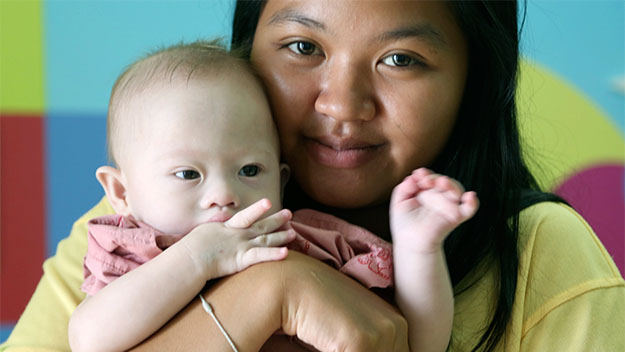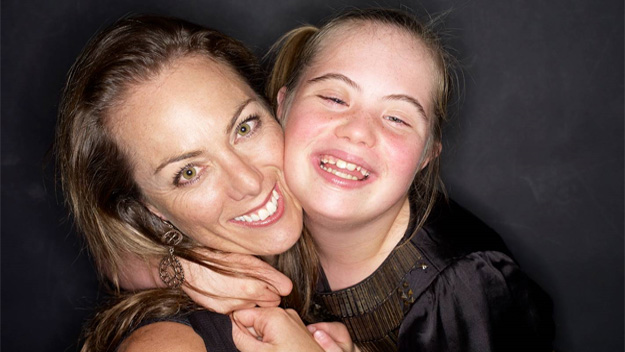An Australian couple travel to Thailand in the hope of finding a surrogate to carry their child.
They find a 21-year-old girl who is deeply in debt, and already has a five-year-old, and another child. They pay her about $11,000 to undergo IVF, and so she falls pregnant, and it’s twins.
The Australian couple are delighted. To be clear, these children are their children, meaning their own flesh and blood. Time passes, and a test is done. One of the babies has Down syndrome.
Now the mood turns dark. First, the Australian couple tries to order the surrogate to have an abortion. She refuses, so they try to bully her into having a “selective reduction” (the term given to the culling of unwanted, usually disabled foetuses).
She again refuses, and gives birth to both children. At which point, the Australian couple take their healthy daughter from her arms, and spirit the child away.
In the process, they leave their daughter’s baby brother — her twin, Gammy — struggling with a lung infection and a hole in his tiny heart.
Most Australians have reacted with horror. How does anyone do that?
How do you get on the plane with your daughter, knowing that your baby son — her twin — is fighting for his life?
How do you show off a new baby, knowing that she has a twin that you have abandoned on foreign shores?
What does this couple intend to tell their daughter, in years to come? You had a brother, but he was disabled, so we left him to his fate. The situation is grotesque, yet Australians should know this: Gammy is not the first, and he will not be the last.
The Australian embassy in Bangkok deals daily with Australian couples who travel to Thailand to find a surrogate to carry their baby.
In recent years, the embassy has had to open a new room to cope with demands from new parents, who have no idea how to care for the babies they’ve ordered. These parents go to the embassy for the documents they need to bring their children back to Australia, and stay to beg for help from staff on how to nurse, burp and change their infants.
This is not the first time one of those couples has tried to order a woman to have an abortion; very often, they succeed.
Nor is it the first time that embassy staff have had to deal with a couple refusing to take their own child home.
In one earlier, unreported case, a surrogate went to the embassy complaining that an Australian couple was trying to back out of their contract because she was carrying twins, and they wanted only one child. The embassy stepped in, and the couple ended up taking both children.
Another couple tried to make a surrogate have an abortion because she was carrying a boy and they wanted a girl (according to embassy workers, when it comes to surrogacy, Australian couples overwhelmingly prefer girls). She refused, and the Australian couple reluctantly took their son.
In another case, almost as shocking as Gammy’s, the embassy has had to persuade an Australian couple to pay the medical bills of their own sick child, after they initially refused to pay.
In this case, the couple told the embassy they had paid for one baby and only wanted one baby. Their surrogate fell pregnant with twins. The babies were born at 28 weeks and, when one of them needed intensive care, the Australian couple actually had the gall to ask the embassy for help in getting out of their contract, which stipulated that they would help with medical costs. They argued against having to pay, on the grounds that the surrogate had refused to have an abortion and should therefore bear the cost of complications from a multiple birth.
Is this then, who we are now are? A nation so rich that we can easily hurdle the problem of infertility by travelling abroad to pay poorer women to have our children; and yet so poor in spirit that we would then abandon those infants for the crime of being born in the wrong number, or of the wrong gender, or somehow less than perfect?
The answer is no. Not all of us are like that. At the time of writing, good people had opened their wallets and donated more than $190,000 to Gammy’s care. Others had opened their homes.
‘Give him to me,’ said one poster, on Gammy’s fundraising website, ‘I’ll raise him like my own.’ It is heartening, but remember, he is not the only one, and by tomorrow, there will be more, and so the question remains: Have we gained the whole world, and lost our own soul?
Caroline Overington is the associate editor of The Australian Women’s Weekly, a best-selling author and journalist who has won the Sir Keith Murdoch Award for Journalism.


